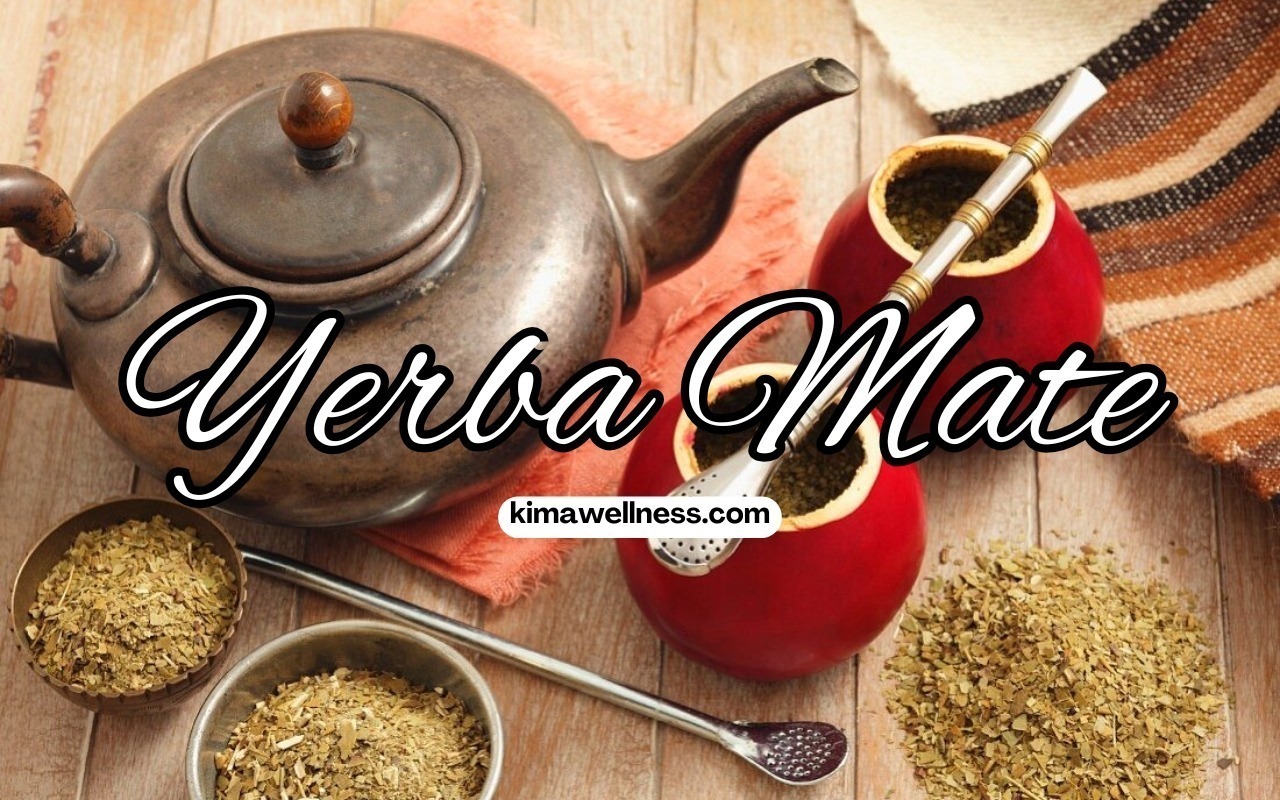
At KIMAWellness.com, our focus is on holistic pain management and evidence-based therapies that help individuals find natural relief from chronic pain and inflammation. One traditional remedy that has gained global attention is yerba mate, a herbal infusion made from the Ilex paraguariensis plant. This antioxidant-rich beverage has been studied for its anti-inflammatory, circulatory, and neuromuscular benefits, making it an interesting natural option for pain relief and recovery.
This article explores the science behind yerba mate’s potential role in reducing inflammation, supporting musculoskeletal health, and improving overall well-being, particularly for those dealing with chronic pain conditions, joint discomfort, and muscle tension.
Understanding Inflammation and Chronic Pain
Inflammation is the body's natural response to injury, infection, or chronic stress, but excessive or prolonged inflammation can lead to joint pain, muscle stiffness, and conditions like arthritis or fibromyalgia. Managing inflammation is key to long-term pain relief and mobility.
Yerba mate contains bioactive compounds that have been studied for their anti-inflammatory properties, making it a potential complementary therapy for those seeking natural pain relief.
How Yerba Mate May Help Reduce Inflammation and Pain
Yerba mate is loaded with antioxidants, polyphenols, and anti-inflammatory compounds that can help reduce oxidative stress and modulate pain response. Here’s how it works:
1. Rich in Anti-Inflammatory Compounds
Yerba mate contains several phytochemicals that may help reduce inflammation:
- Saponins: These plant compounds have been shown to inhibit pro-inflammatory cytokines, which contribute to chronic pain and autoimmune conditions.
- Polyphenols & Caffeoyl Derivatives: These powerful antioxidants help neutralize free radicals, reducing cellular damage and inflammation in muscles and joints.
- Xanthines (Caffeine & Theobromine): These compounds may enhance circulation and relax muscles, promoting pain relief and recovery.
Clinical Insight: A study published in Phytomedicine found that polyphenols in yerba mate exhibited strong anti-inflammatory activity, potentially benefiting those with arthritis, fibromyalgia, and muscle pain.
2. Supports Joint Health and Mobility
Joint pain and stiffness are common among individuals dealing with arthritis, overuse injuries, and age-related wear and tear. Yerba mate may help support joint health in the following ways:
- Protects cartilage and connective tissues by reducing oxidative stress.
- May lower uric acid levels, which could help with conditions like gout.
- Enhances circulation, helping deliver oxygen and nutrients to tissues that aid in joint repair.
Pain Management Tip: Drinking yerba mate regularly as part of an anti-inflammatory diet may help reduce joint discomfort and improve flexibility over time.
3. Enhances Muscle Recovery and Reduces Soreness
For individuals dealing with muscle pain, tension, or post-exercise soreness, yerba mate may provide natural relief by:
- Reducing oxidative stress that contributes to muscle fatigue and cramping.
- Increasing circulation to muscles, which may improve nutrient delivery and recovery.
- Acting as a mild muscle relaxant, potentially alleviating muscle spasms and tension.
️ Clinical Insight: A study in Journal of the International Society of Sports Nutrition found that caffeine-containing herbal drinks like yerba mate may enhance muscle recovery and reduce post-exercise inflammation.
4. Supports Nervous System and Pain Modulation
Chronic pain conditions often involve dysregulation in the nervous system, which can heighten sensitivity to pain. Yerba mate contains compounds that may help modulate pain perception and provide neuromuscular support.
- Caffeine & Theobromine: These compounds can reduce the perception of pain by stimulating neurotransmitters that influence pain sensitivity.
- Antioxidants protect nerve tissues, potentially benefiting individuals with neuropathic pain or fibromyalgia.
- May reduce stress-related inflammation, which is often linked to chronic pain flare-ups.
Pain Management Tip: Drinking yerba mate alongside movement therapy, massage, or acupuncture may provide additional relief from nerve-related pain and tension.
How to Incorporate Yerba Mate for Pain Management
Yerba mate can be prepared and consumed in different ways depending on your needs and preferences.
Best Ways to Use Yerba Mate for Pain Relief:
- Traditional Method: Steep yerba mate leaves in warm (not boiling) water and sip through a metal straw (bombilla) in a gourd.
- French Press or Tea Infuser: Brew yerba mate in hot water for 3-5 minutes, strain, and enjoy.
- Cold Brew Yerba Mate: Let yerba mate steep in cold water overnight for a refreshing, anti-inflammatory iced tea.
- Blended Herbal Infusion: Mix yerba mate with turmeric, ginger, or chamomile for enhanced pain-relieving properties.
Precautions and Considerations
While yerba mate is generally safe, it’s important to consume it in moderation and be mindful of a few key considerations:
- Caffeine Sensitivity: If you’re sensitive to caffeine, start with a small amount to assess tolerance.
- Hydration Balance: Yerba mate has mild diuretic effects, so be sure to stay hydrated throughout the day.
- Avoid Very Hot Temperatures: Drinking yerba mate at extremely high temperatures may increase the risk of esophageal irritation—allow it to cool slightly before drinking.
Conclusion: Can Yerba Mate Help with Pain Management?
Yerba mate is a powerful herbal drink with potential benefits for pain relief, inflammation reduction, and muscle recovery. While it may not replace medical treatments, it can be a complementary addition to a holistic pain management plan.
At KIMAWellness.com, we encourage individuals seeking natural ways to support their pain management journey to explore anti-inflammatory nutrition, movement therapy, and evidence-based herbal remedies. If you’re interested in trying yerba mate for pain relief, start with moderate consumption, pair it with a balanced diet, and consult a healthcare provider if you have underlying health conditions.